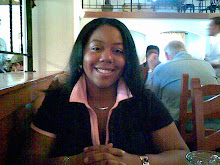With the unjustifiable continuation of the war in Iraq, our government’s maladjustment to the presence of Immigrants and their rights protests, the seemingly unstoppable increase of gas prices, and the persistent race and gender dichotomies and divisions within our community, one questions if and where s/he can find peace of mind in the queer community. Rather than looking for peace, however, we might consider creating peace – in a revolutionary way – that can both distract us from those named calamities and confront the system that perpetuates them as stable and unchangeable realities in our society. Perhaps standing up against mandated, stoic and arguably violent relationships with other countries, “other” residents of this country, capitalist price gougers, and racist and gender-exclusive institutions and individuals requires us to consider how we participate in the system - or how we WANT to participate in the system.
Our involuntary relationships with one another – in the hegemonic system of monogamy – could possibly be viewed as a mandated, stoic and arguably violent perpetuation of structures that cause ruptures in human freedom of expression, identity, engagement and pursuits of both individual and communal happiness. Perhaps, especially in our community – the Black queer community – some peace may be created in the radical act of existing in non-normative, non-monogamous relation to one another. While existing in the queer community is itself a revolutionary act, some of us engage in that community in ways that are (or try to be) normative. Let's begin with the labels. Sometimes, we fall prey to unhelpful and usually unnecessary (but often constricting) gender title wars, advocating for some designation of “femme,” “butch,” “soft butch,” “bottom,” “top,” “versatile," "aggressive," "femme aggressive," "stud" "girlie girl" or whatever label that seems palatable so that we can communicate the validity of our existences to ourselves and to other people who might be interested in knowing who we are. On the one hand, this is important enterprise, as it offers us the opportunity to name ourselves and claim identities that are important to us, without being signified by dominant cultural naming practices. On the other hand, these labels are ways to translate what might be untranslatable realities and experiences to a culture which arrogantly and blindly moves through its own hegemonic system of nomenclature. In this way, we sometimes attempt to mirror normative labels extant in the social structure.
Unfortunately (and moving toward my larger point), this practice permeates our concepts of relationship as well. We attempt to mirror relationships and relational practices that are limiting and proscriptive, regardless of their success, benefits, and costs. One could relate this speculum activity to nothing more than assimilationism and perhaps a lack of vision for the multifarious possibilities for how one might engage in relationship. But that would be unfair. I wonder if it might be more fair to think about the ways we construct relationships as emergent from our deepest fears (rather than our deepest desires). That is to say: even in the queer community, despite many and varied revolutionary acts and stances for justice, there exists persistent fears of intolerance, lack of acceptance, the absence of affirmation or worse: lack of recognition, denial of work opportunities, limited lifestyle and family choices, and even violence. Understandably so, right? Well, I assert that these fears have dire social effects, and one which is blatantly obvious is compulsory monogamy.
To be clear, I am an advocate of MOST relationship types and styles, reveling in loves that are pure and happy and life-giving for all involved. This includes monogamy. What I am pointing to here, however, is the way that an obligatory style of relationship might be another result of the fears that are a part of queer communities (and surely others, but I'm not talking about those today). If, as various social communities we have been concerned with the maintenance of structures, categories, and rules in order to justly (usually not so justly) distribute and receive goods, rights, privileges and more, one could see how the relationship style of monogamy could maintain a structure. The problem, though, is that this maintained structure has been and currently is unjust, violent, oppressive, marginalizing, suppressive, and dehumanizing for many people. We could definitely talk about the continuation of uncritical, compulsive monogamy might as a proponent of gender disparities, role games, exclusivity, and selfish and insecure power dynamics that feed into other social norms of oppression and violence.
So, am I saying monogamy is evil and worthy of being stamped out? ABSOLUTELY NOT. Am I saying that it has within it some assumptions, norms, and practices which might contribute to unjust and unfortunate ideas of how we can righteously BE together? SURE. To be clear, I want to advocate for a set of relationship options that incorporate lots of possibilities, including a monogamy that is revolutionized. Really, I just think the subject is complicated and deserves a robust discussion and analysis.
Sometime after my exams (for which I should be studying RIGHT NOW instead of writing this note), I would like to think (together with you all) through various theo-ethical justifications for and approaches to non-normative relationship existences that allow for the liberal and live-giving visions of queer relationships, giving particular attention to the Black queer community. I speculate that, given the notion of love without boundary, in favor of abundance and with faith in one’s lovers, queers might find ourselves in a revolution of moral relationship philosophy. More clearly, perhaps the very idea of non-normative non-monogamy will open Black queers bodies to the freedom longed for since the revolutions of the rebellions of the slaves, the burning of bras, and the brawl at Stonewall.

